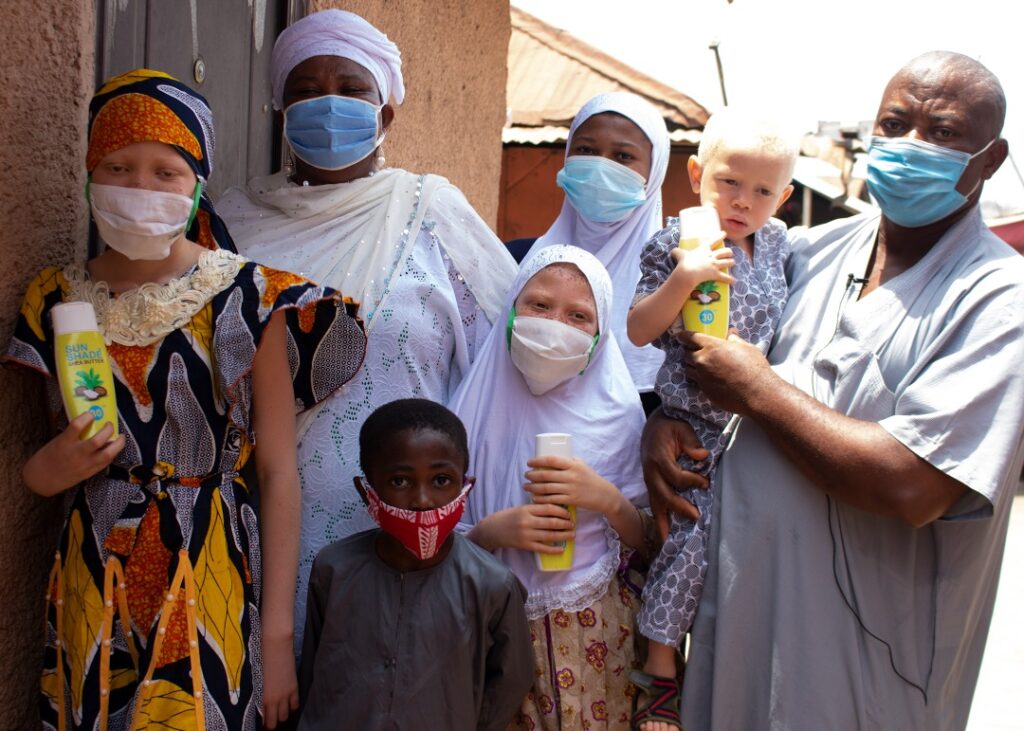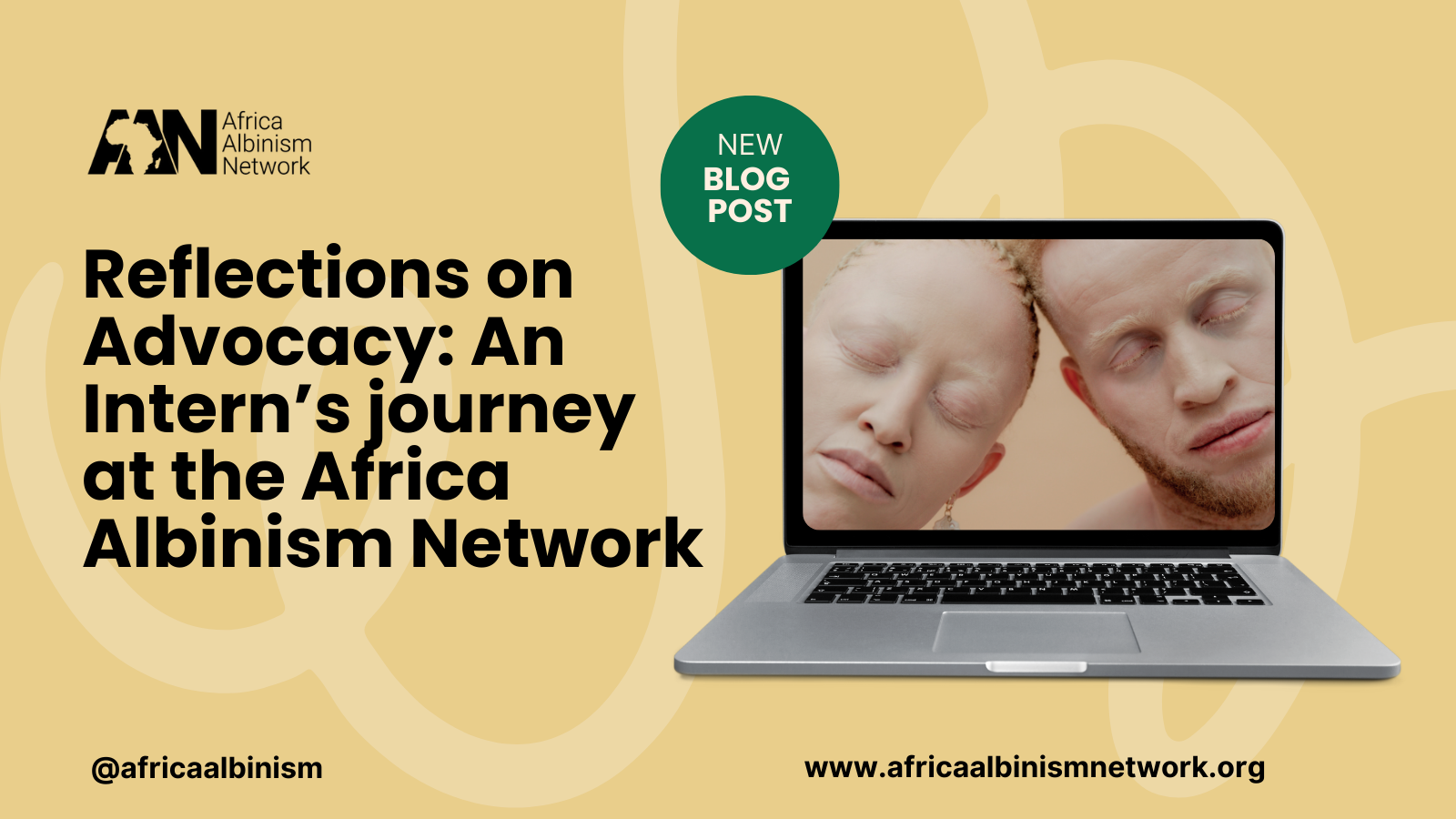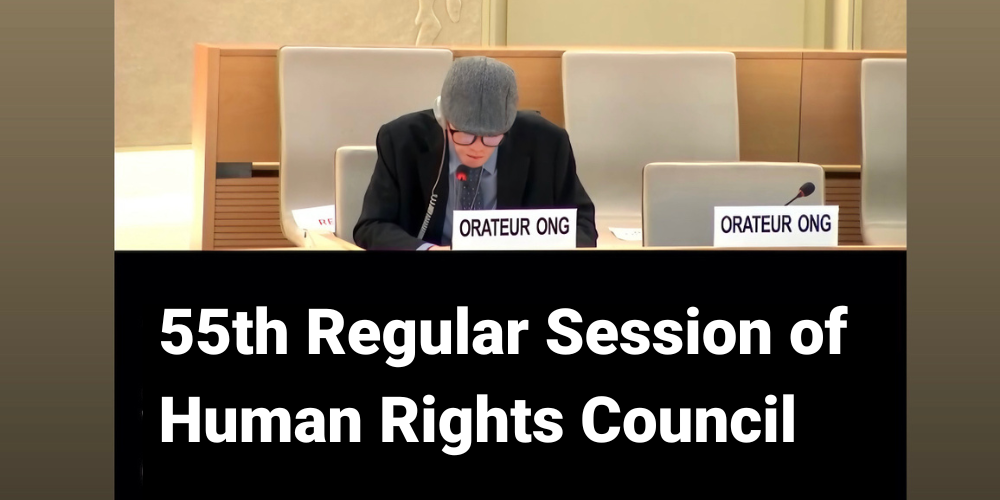Throughout my life as a person with albinism, my relationship with the sun has always been one of caution and restraint. From an early age, I became acutely aware of the sun’s intensity and impact on my skin. The dry season was not merely a time for play; it was challenging to navigate. Sunburn was a common occurrence, accompanied by the discomfort of blistered skin.
“Living in sunny West Africa means a daily battle against skin cancer, which is the number one killer of people with albinism (PWA) in Africa. This has always been my constant reality.”
While my peers basked in the luxury of carefree outdoor play, I found solace in the shade, avoiding the scorching hot sun that threatened my well-being. Reflecting on my childhood, I recall my grandmother’s efforts to shield me from the sun. She always used to say, “Kwame, stay in the shade; the sun is too hot.” Her warning messages stemmed from seeing me sunburned while working on the farm, and on several occasions, I got sunburnt on my face, neck, ears, and sometimes on my arms because they were the most exposed to the sun. I recall a harrowing experience when my entire head blistered because it was shaved to the skin without any hair.

Caption: Family visit to distribute sunscreen in 2021 in Accra (Nima) by Kwame with Engage Now Africa
Eventually, the only other way she knew to help me was to provide a wide-brimmed hat and long-sleeved clothing. Despite these measures, the sun’s relentless rays took their toll, leaving a lasting impression on my skin and shaping my understanding of the unique challenges people like me face every year.
My story and upbringing with my grandmother on the farm resonate with many PWAs who were also born and raised in rural areas. PWAs experience social challenges due to misunderstandings, behaviors, social exclusion, labeling, and negative beliefs associated with their condition. These issues arise from a lack of public awareness about albinism, leading to stigma and discrimination against people with this condition. Consequently, they encounter difficulties accessing education, depriving them of the necessary skills for formal employment indoors. In rural areas, many individuals with albinism are agricultural workers whose productivity is hindered by the harsh effects of the sun. Therefore, amid scorching heatwaves in West Africa, due to rising temperatures, increased sun exposure increases the absorption of UVB and UVA rays by the skin which causes sunburn and consequently skin cancer.
According to the WHO, “the prevalence of skin cancer has been on the rise globally. There are between 2 to 3 million non-melanoma skin cancers and 132,000 melanoma skin cancers, occur globally each year”. The top 10 countries with the highest skin cancer rates are in developed countries, where most people have less melanin and less protection against UV rays.
Furthermore, in 2022, the United States of America was the leading country in the sun protection skin care market by a considerable distance, with revenues amounting to nearly two billion U.S. dollars. With all of this in mind, we are also seeing billions of dollars invested every year in skin cancer prevention programs and research for the populations in developed countries.
So, what can we do? For one, conversations on climate change are a central topic in the high-level political arena in Africa, but what’s missing are discussions at all levels on the investments that should be made in skin cancer prevention programs, treatment, research, and sunscreen production in the health and education sectors.
“I also observed that the link between the effects of pollution on the degradation of the ozone layer and skin cancer is often missing in these discussions. This means that an increasing amount of harmful UV rays penetrate our atmosphere and reach the Earth’s surface. It’s projected that even a minor 10% decrease in ozone thickness could lead to an extra 300,000 cases of non-melanoma and 4,500 cases of melanoma skin cancer.”
Secondly, people with albinism in Africa face unique struggles on multiple fronts, so for this, we can advocate for sunscreen to be added to the World Health Organization’s (WHO) list of essential medicines;
We can spearhead local initiatives to produce sunscreen; we can fight for access to quality and affordable sunscreen; and we can advocate for access to quality healthcare services for early skin cancer screening, treatment, and prevention protocols. Schools should prioritize providing or permitting long–sleeved shirts, wide–brimmed hats, and trousers for students with albinism. These are not all the possible protection measures, but they are often some of the most impactful and relatively cost-effective for governments and development partners.
Finally, by signing the petition to the WHO, we can push for global acknowledgement and support to make sunscreen accessible and affordable. This action, combined with local initiatives and awareness campaigns, can significantly reduce the risk of skin cancer for People with albinism.
Caption (Featured image above): Skin and Eye Health Consultation in Accra in 2021, Engage Now Africa


